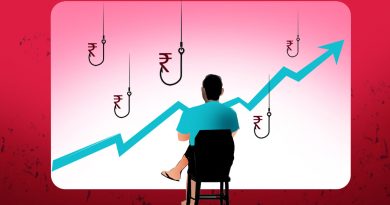Countries Where Corporations Cheat the Free Market the Most
Corporations in the U.S. economy — both foreign and domestic — have forked out $96 billion since 2000 in U.S. penalties for price fixing and other anti-competitive actions in more than 2,000 cases, according to data tracked by national policy resource center Good Jobs First.
These civil and criminal cases have originated from federal agencies, state attorneys general, and class-action lawsuits. In some of the high-profile cases, companies had to settle with federal and state prosecutors and private class-action plaintiffs. Class-actions make up the largest number of these cases. (Not just price fixing, but here are 30 scandals that cost companies billions in fines.)
While many of these antitrust cases go unnoticed, a few stand out for their size and scope. Nearly $93 billion worth of these penalties come from companies and their subsidiaries that have accrued more than $1 billion in U.S. price-fixing penalties since 2000.
These include well-known consumer-facing names like credit card processor Visa and South Korean industrial conglomerate LG, as well as lesser-known companies like Yakazi, which supplies auto parts to U.S.-based car manufacturers, and BC Hydro, a Canadian state-owned electricity exporter, which agreed to pay $750 million in 2013 to settle allegations that its electricity-export division price-gouged consumers during California’s 2000-2001 power crisis.
Out of the $93 billion worth of fines and settlements from companies that have accrued more than $1 billion in penalties since 2000, nearly $49 billion came from 864 cases involving companies headquartered in the U.S. More than 1,000 other cases involved corporations with headquarters located outside of the United States, led by Japanese entities.
To determine the countries where corporations with the most price-fixing penalties are headquartered, 24/7 Wall St. reviewed data from the report “Conspiring Against Competition: Illegal Corporate Price-Fixing in the U.S. Economy” from Good Jobs First. Countries were ranked based on the total amount of penalties the U.S. government levied against companies headquartered there for price-fixing in the U.S. from January 2000 to March 2023. Data on the number of price-fixing cases for each headquarter country also came from Good Jobs First.
The biggest industries with companies that have paid at least $1 billion in price-fixing penalties since 2000 are banking, pharmaceuticals, and electronic equipment. (Price-fixing is easier if a company controls the market. These companies control over 50% of their industry.)
Drugmakers including Israel’s Teva Pharmaceuticals have paid out billions in so-called pay-for-delay cases in the U.S. In these cases, pharmaceutical companies or their subsidiaries have settled allegations of colluding to block the introduction of competing generic drugs, a practice that keeps prices higher by preventing competing, cheaper products from entering the market when patent protections expire.
The massive rate-rigging scandal that emerged in 2012, in which bankers at some of the world’s largest financial institutions colluded to manipulate the benchmark the London Interbank Offered Rate (Libor) and the Euro Interbank Offered Rate (Euribor) interest rates, makes up a sizable portion of the $33.3 billion in U.S.-based fines and settlements paid by banks that have accrued more than $1 billion in penalties since 2000.
Click here to see where corporations cheat the free market the most.
Sponsored: Find a Qualified Financial Advisor
Finding a qualified financial advisor doesn’t have to be hard. SmartAsset’s free tool matches you with up to 3 fiduciary financial advisors in your area in 5 minutes. Each advisor has been vetted by SmartAsset and is held to a fiduciary standard to act in your best interests. If you’re ready to be matched with local advisors that can help you achieve your financial goals, get started now.
Source: Read Full Article



